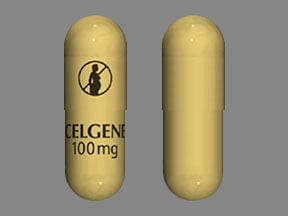
Thalomid Coupons & Savings Card – Discount Prices from $8023.47
My prescription
Edit
100MG, Thalomid (28 Capsules)
Select pharmacy

Albertsons
$8023.47
COUPON PRICE
Walmart
$8043.59
COUPON PRICE
Walgreens
$8054.58
COUPON PRICEThalomid savings card
Show this card to your pharmacist
Albertsons
$8023.47
BIN
ID
PCN
GRP
019876
LH1F3570F6
CHIPPO
LHX
Powered by
Related thalidomides prescriptions
More prescriptions for multiple myeloma
Related thalidomides prescriptions
More prescriptions for multiple myeloma
Price history for Thalomid
28 Capsules, 100MG
Average retail price for Thalomid
Average SaveHealth price for Thalomid
Our price history data is based on aggregated prescription data collected from participating pharmacies in America. Our prescription data updates daily to reflect the latest price changes. If you notice a missing data point, it means there wasn't sufficient data available to generate a monetary value for that date.
*Retail prices are based on pharmacy claims data, and may not be accurate when we don't have enough claims.
Thalomid dosage forms
Dosage Quantity Price from Per unit 50MG 1 Capsule $158.41 $158.41 50MG 28 Capsules $4945.88 $176.64 100MG 28 Capsules $8023.47 $286.55 150MG 28 Capsules $8578.55 $306.38 200MG 28 Capsules $9133.99 $326.21
| Dosage | Quantity | Price from | Per unit |
|---|---|---|---|
| 50MG | 1 Capsule | $158.41 | $158.41 |
| 50MG | 28 Capsules | $4945.88 | $176.64 |
| 100MG | 28 Capsules | $8023.47 | $286.55 |
| 150MG | 28 Capsules | $8578.55 | $306.38 |
| 200MG | 28 Capsules | $9133.99 | $326.21 |
What is the drug THALOMID used for?
Thalomid is used primarily to treat multiple myeloma, a type of cancer that affects plasma cells. It is also used to manage and treat erythema nodosum leprosum, a complication of leprosy.
How much does THALOMID cost?
The cost of THALOMID can vary significantly based on factors such as the pharmacy, location, insurance coverage, and dosage. It is recommended to check with local pharmacies or consult with a healthcare provider or insurance company for the most accurate and up-to-date pricing information.
Is thalomid generic?
Thalomid is the brand name for the drug thalidomide. There is a generic version of thalidomide available.
Who should not take thalomid?
Thalomid (thalidomide) should not be taken by individuals who are pregnant or planning to become pregnant, as it can cause severe birth defects or fetal death. Additionally, individuals with a known hypersensitivity to thalidomide or any of its components should avoid taking it. It is also important for individuals with certain health conditions, such as severe peripheral neuropathy, to consult their healthcare provider before using Thalomid. Women of childbearing potential must adhere to strict contraceptive measures and participate in a pregnancy prevention program while on this medication.
What is the drug thalomid used for?
Thalomid, also known as thalidomide, is used primarily to treat multiple myeloma, a type of cancer that affects plasma cells. It is also used to manage and treat erythema nodosum leprosum, a complication of leprosy. Additionally, it may be prescribed for other conditions as determined by a healthcare provider.
